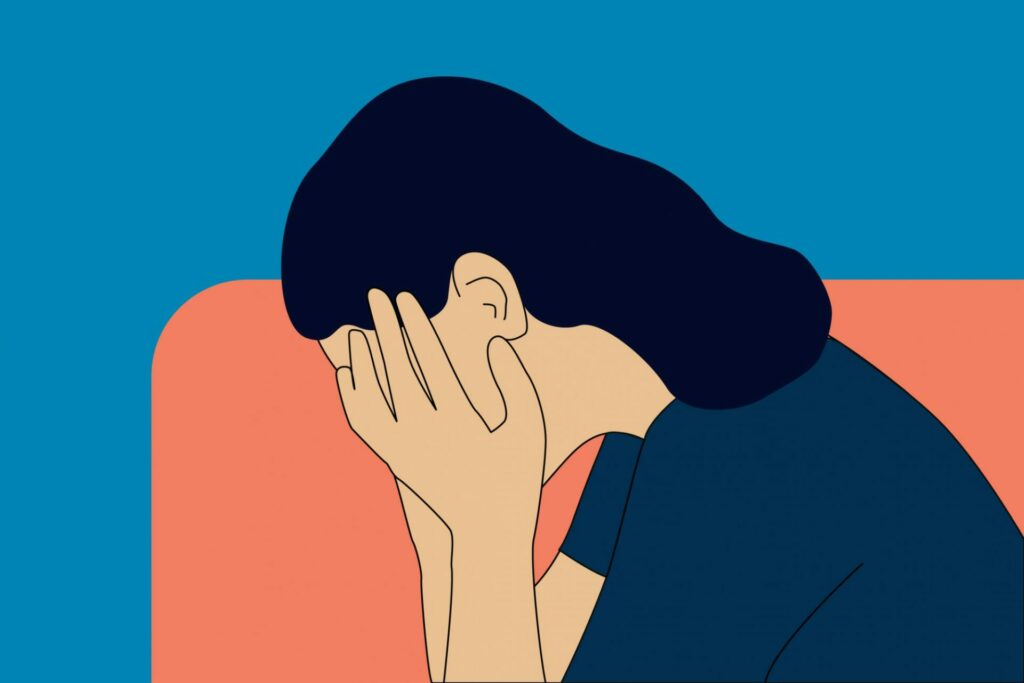OCD in teenagers is more common than most people think. One in every 100 teens has OCD. If you are the parent of a teenager who has been recently diagnosed with OCD, or if you are a teenager who is struggling with OCD, this blog post is for you! We will discuss what OCD is, the causes of OCD in teenagers, how to help a teenager with OCD, and what to expect in the future.
What is OCD?
Obsessive-compulsive disorder (OCD) is an anxiety disorder that causes a person to have intrusive, unwanted thoughts (obsessions) and to perform repetitive behaviors (compulsions) in an attempt to relieve the anxiety. For example, a teenager with OCD might be obsessed with the thought of germs and dirt and might wash her hands over and over again throughout the day in an attempt to get rid of the germs.
What Causes OCD in Teenagers?

There is no single cause of OCD in teenagers. However, several risk factors may increase a teenager’s chances of developing OCD. These risk factors include:
- A family history of OCD or other anxiety disorders
- Trauma or stressful life events
- Certain personality traits, such as perfectionism or excessive worry
How to Help your Teenager?

Here are a few ways through which you can help your teenager reduce the symptoms of OCD:-
Gain Knowledge About OCD
You need to get knowledgeable about OCD if you want to be a supportive ally to someone who has the disorder and needs to be aware of the signs and the things that set them off. You will be better able to support your loved ones if you have a greater understanding of what they are going through.
Knowing the numerous symptoms of Obsessive-Compulsive Disorder (OCD) is essential because OCD can present itself in a variety of ways. Here are a few instances:
- Excessive handwashing or showering
- Checking locks, appliances, or lights multiple times
- Organizing and rearranging objects
- Counting, tapping, or repeating words or phrases
- Needing things to be “just so”
- Obsessive thoughts about food or germs
- Unwanted sexually explicit or violent thoughts
- Avoiding people, places, or things that trigger obsessions
- Compulsively working out
- Spending excessive time on grooming or wardrobe changes
- Excessive skin picking or hair pulling
Be Supportive and Understanding
The second step in helping your teenager is to be supportive and understanding. It is essential to provide a safe and non-judgmental environment for your teenager. Many people with OCD feel ashamed of their disorder and are afraid to tell anyone about it. It is important to let your teenager know that you love them and accept them no matter what.
It’s critical to pay attention to your loved ones without passing judgment. Try to comprehend what they’re going through and lend a hand if possible. It’s vital to validate their feelings and let them know you comprehend how difficult it is for them. Given their anxiety, you must acknowledge that their ideas may appear irrational to you, but to them, they are very real.
Encourage Them to Seek Help
The third step is to encourage your teenager to seek help from a mental health professional. OCD is a treatable disorder, but it often requires professional help to get better. A mental health professional can help your teenager understand their OCD and develop coping strategies to deal with their obsessions and compulsions.
Assist them in becoming well informed about established treatments, such as medicine and therapy. Many of the worries that persons with OCD have about therapy may be allayed with information on available choices. It includes how the treatments operate, what is expected of them, What is the importance of each aspect of written planning? What are the pros and cons of writing out your goals and objectives every day or not at all and how these treatments have benefited other people with OCD?
Be Patient
Finally, be patient. Recovery from OCD can take time, and there will likely be setbacks along the way. It is important to be patient and encourage your teenager to keep going. Remember that you are there for them, and you will support them through the ups and downs of their journey.
OCD symptoms vary considerably from one individual to the next. Remember that development is measured according to a person’s level of functioning rather than that of others. Pressure to perform “perfectly” should be avoided; yet, if the stress of attempting to do so exceeds a person’s real capacity, it can lead to increases in stress and other symptoms.
Find Them an OCD Specialist
If you want to help your teenager in the most effective way possible, find them an OCD specialist. A trained professional will know how to help your teenager manage their OCD and live a normal, happy life. Look for a therapist who has experience treating teenagers with OCD. You can also search for an OCD treatment center in your area.
The earlier OCD is detected, the better. Early intervention can make a big difference in the course of the disorder. If you think your teenager may have OCD, don’t wait to get help. The sooner you get them into treatment, the better their chances of recovery.OCD is a serious disorder, but it is treatable. With the right help, your teenager can manage their OCD and live a normal, happy life.
Avoid Giving Suggestions

If you’ve been trying to tell your teen not to think about their obsessions, stop. It might seem like good advice, but it can actually make things worse. When you tell someone not to think about something, it’s human nature to think about it even more. So, instead of telling your teen to stop thinking about their obsessions, encourage them to face their fears head-on.
This will be difficult for them, but it’s important to remember that avoidance only reinforces their OCD. Encourage them to be open and honest about their feelings It can be difficult for teens with OCD to open up about their thoughts and feelings. They might be embarrassed or ashamed of their obsessions and compulsions.
Don’t Compare Yourself With Them
Comparing yourself to them is, in my opinion, among the worst things you can do. Don’t say, “Sometimes I do it too” or “Sometimes I get worried when I have to take tests,” when your friend is battling an obsession or compulsion. You cannot validate their OCD by equating your daily stress with it. Even if you and your friend share the same illness, your experiences will differ, so you shouldn’t compare or try to outdo them in terms of symptoms. It’s not a competition.
But it’s important for them to understand that OCD is a real, treatable disorder. Encourage your teenager to be open and honest about their feelings. Let them know that you’re there for them and that you want to help them get better.
Don’t Enable Them
When you enable an individual with OCD, you are unintentionally encouraging their obsessions and behaviors. For example, if your friend is afraid of germs and asks you to open the door for them, don’t do it. If they are compulsively washing their hands and they ask you to get them a towel, tell them no. It’s not mean; it’s tough love. For your friend to get better, they need to face their fears head-on. If you do things for them, you are only prolonging their suffering.
Do not encourage a friend who is caught in a compulsion loop. Instead of participating, try to encourage and assist them in quitting instead. If someone is obsessed with a certain disease, for example, attempt to divert them rather than join them in searching for its symptoms.
Emotional support is crucial for individuals with OCD. Listening to them, being patient with them, and caring for someone who has OCD may be difficult, but it is important. If you are feeling overwhelmed, consider talking to a therapist or counselor about how to best support your friend.
You may give in to their demands or excuses for their behavior. While it’s critical to be helpful, you also must establish limits. It’s okay to say no if the person is asking you to do something that makes you uncomfortable or that you don’t have time for. It’s also critical to encourage individuals to do things for themselves, even if it’s as simple as making their bed or cleaning the dishes.
Remember to be patient, take care of yourself, and provide emotional support. With time and effort, your teenager will be on the road to recovery.
Be Grateful
You may give in to their demands or excuses for their behavior. While it’s critical to be helpful, you also must establish limits. It’s okay to say no if the person is asking you to do something that makes you uncomfortable or that you don’t have time for. It’s also critical to encourage individuals to do things for themselves, even if it’s as simple as making their bed or cleaning the dishes.
It might be difficult to care for someone with OCD, but there are a few things you can do to make it easier. Remember to be patient, take care of yourself, and provide emotional support. With time and effort, your teenager will be on the road to recovery. Be grateful for what you have and for what you can do. Don’t take your teen for granted, and appreciate the little things in life.
Conclusion
OCD can be a difficult disorder to live with, but with treatment, most people with OCD can improve. If you think your teen might have OCD, talk to their doctor. And if you’re struggling to support a friend or family member with OCD, remember that you are not alone. There are many resources available to help you.
If you want medical attention, we can offer you affordable online therapy or you can download our free OCD treatment app on Android or iOS.


